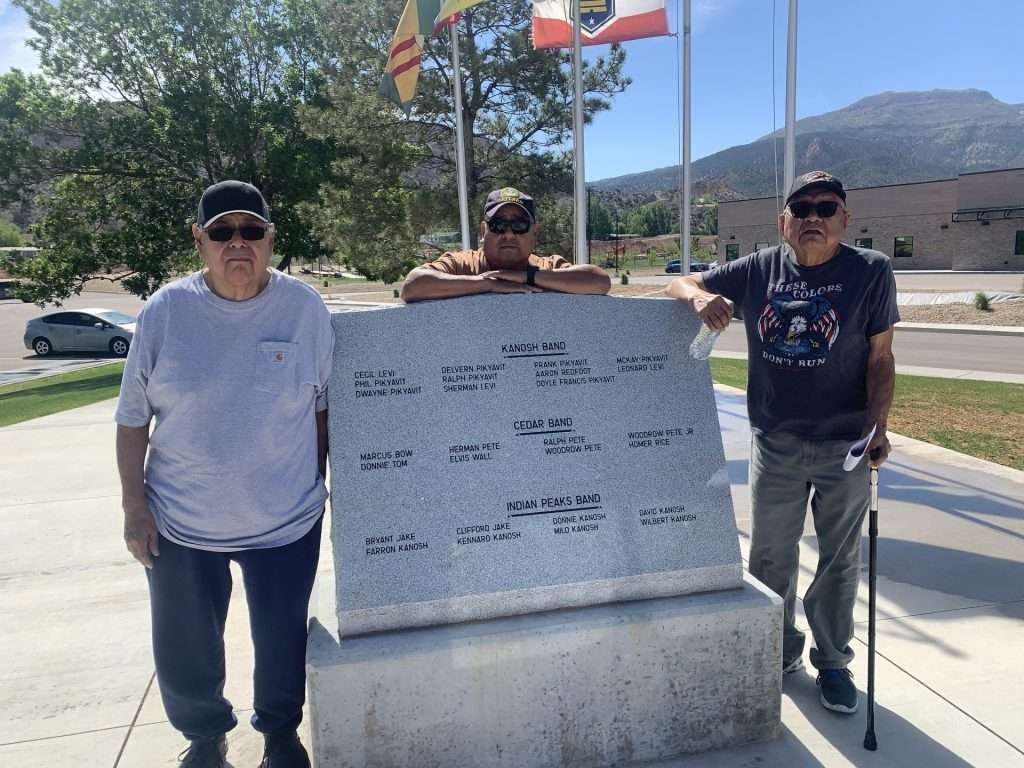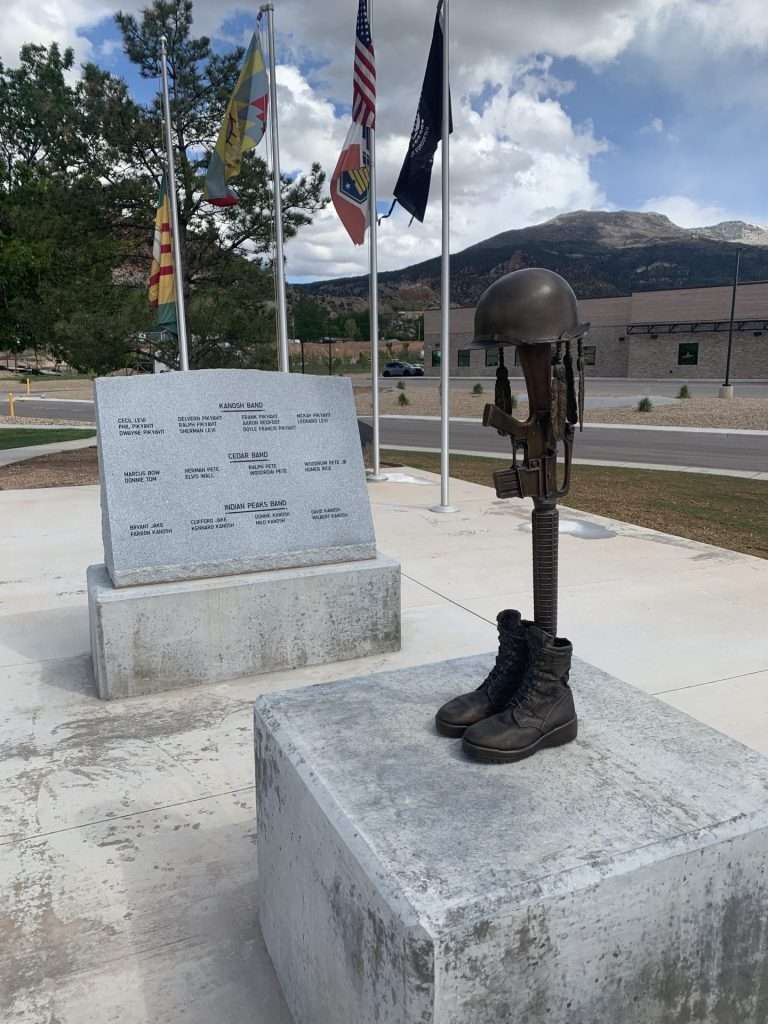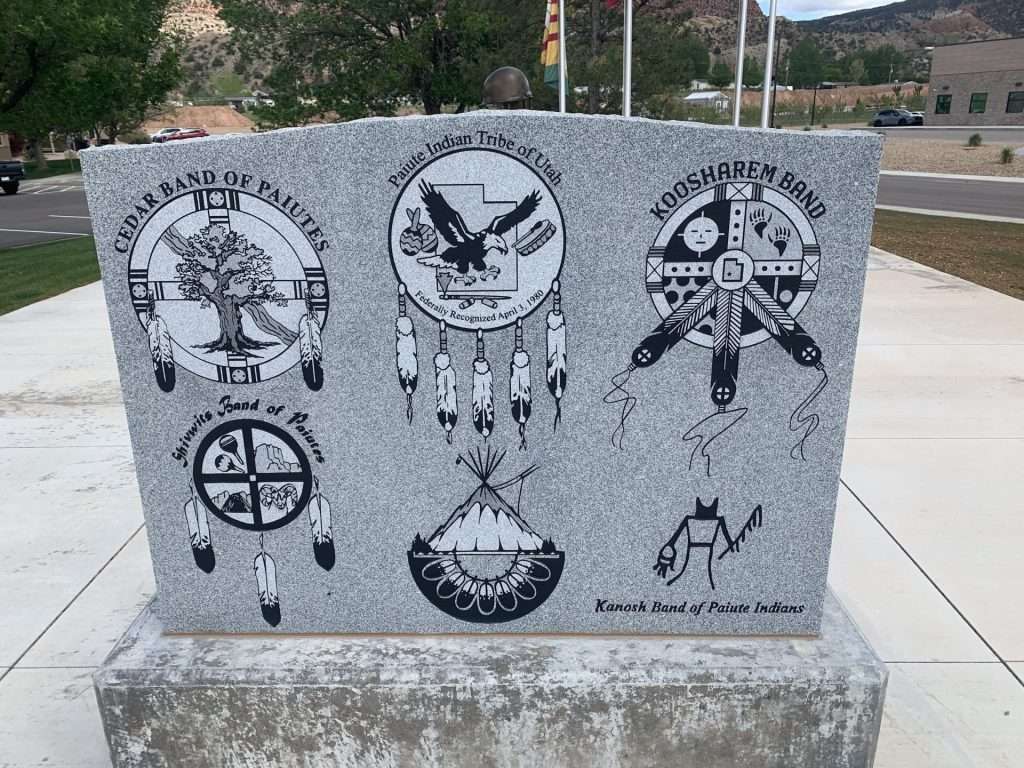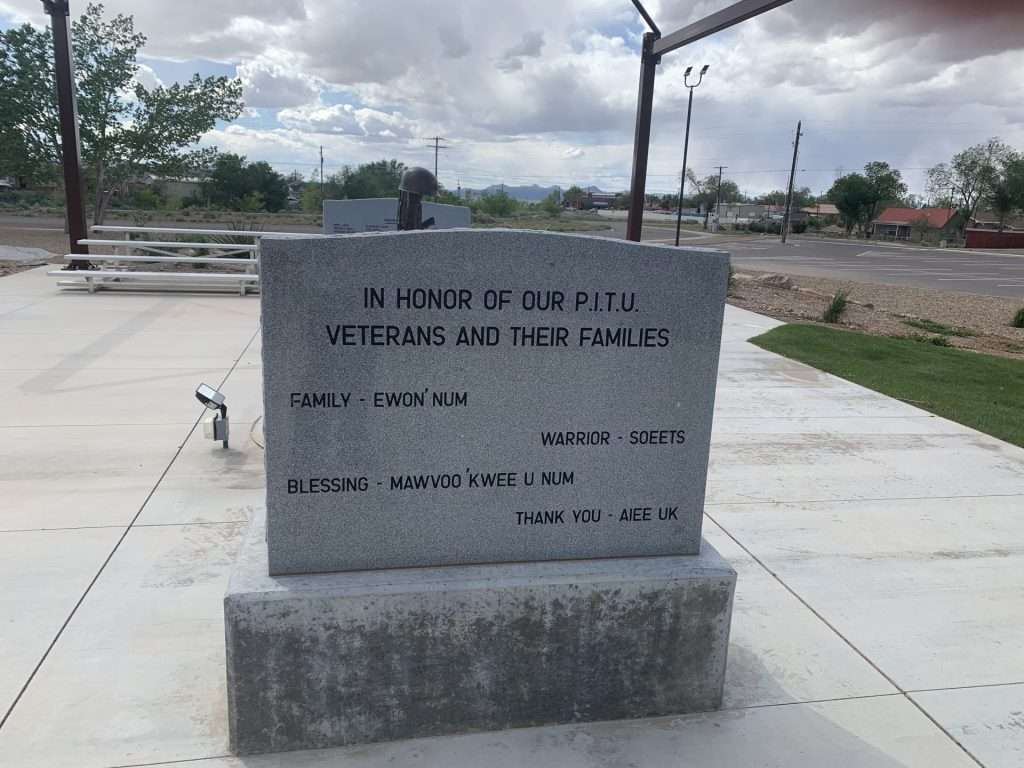By Ruth Scovill and Paul Dail, For Iron County Today
North of the Cedar City Veterans’ Memorial Park between FourPoints Health Clinic and the Paiute Tribal Office on Paiute Drive stands a beautiful memorial dedicated in December 2023 and honoring 59 veterans among the five bands of the Paiute Indian Tribe of Utah: Cedar Band, Indian Peaks Band, Kanosh Band, Koosharem Band, and Shivwits Band. Centered between two granite memorials with the names of all the servicemen and women who have served from each band is a bronze “Soldier’s Cross” or “Battlefield Cross.” This cross is constructed on the battlefield by a rifle standing upright between a pair of boots with a soldier’s helmet over the butt of the gun. On the back of this particular helmet hang five feathers, each representing one of the five PITU bands. What can no longer protect the soldier now serves to memorialize those who paid the ultimate sacrifice, giving their lives for their country. On the back of the twin monuments are the beautiful logos of each Paiute band, and an inscription honoring the veterans and their families. Overhead fly a collection of flags honoring the country, the state and the Tribe.
On the day that I visited the tribal office, I had the opportunity to speak with three veterans from the Cedar Band: Woodrow Pete Jr., Ralph Pete, and Marcus Bow.
Woodrow Pete, Jr. was drafted into the Army and served from 1968 to 1969 during the Vietnam War. He was in the infantry and fought in five battles. Woodrow’s father had served in the military, and Woodrow’s younger brother, Herman Pete, also served in the Army in Germany.
Ralph Pete’s father wanted to be a Marine, and Ralph followed in his father’s footsteps. He had a deep desire to fight communism and volunteered for the military. Ralph fought in the Vietnam War between 1969 and 1970. In Vietnam, Ralph met several other soldiers from Cedar City including Keith Seegmiller, Brent Bulloch, and Devon Porter.
Woodrow related that when they got home, one of his friends was told by a tribal elder not to talk too much about what they did in the war. Woodrow took this advice to heart and followed it. Ralph Pete concurred with this. He said, “You can keep talking about it and it won’t go away.” Upon returning from Vietnam, at LAX, Ralph and the other Marines who were with him were confronted by crowds calling them baby killers, and throwing things at the Marines. He said that what you didn’t see in the newspapers is that the North Vietnamese, including young boys, were also killing the American soldiers.
With all the controversies of the war, the soldiers were often met with little fanfare. Woodrow talked about returning home. He walked home from the bus station because there was no one there to greet him, and his grandfather met him later and said, “Oh, I didn’t even know you were back.” Woodrow said he felt that the government was mainly responsible for losing the war in Vietnam due to bad publicity at home and how they handled things.
Marcus Bow’s step dad served in Korea and his uncle Homer Rice died in Korea, giving him the example of serving your country. Bow was accepted into the service in 1980 and served for four years during the “Cold War.” He served in the US and in Europe.
Although Marcus said he didn’t feel like he fit in growing up and going to school as a Native American, he found acceptance in the military. “We’re trained to be as one. There was no bigotry. Any veteran would say, ‘Yeah, they’re my brothers and sisters.’” To the young people who are considering joining the service, Marcus gave the advice to be proud of the decision but also to be honest with themselves. More than just joining for a career, they need to realize that they could be making the greatest sacrifice.
Marcus expressed his great sense of patriotism to the United States, where the Native Americans were the first inhabitants. He said it was for this reason that they are so willing to serve—not necessarily to serve a particular government or political party but rather to fight for the country that they will forever call their homeland. “It was an honor to serve. It was something I could contribute to this country.” He later added: “If Uncle Sam called me up right now, I would still serve.”
The Paiute Indian Tribe of Utah expressed its gratitude to all of the veterans from the Southern Paiute bands, those whom the Tribe calls “warriors,” as well as their families, for their willingness to sacrifice and serve.
I would like to extend that gratitude to all veterans who have served our country. Thank you for your service, and thank you to Ralph, Woodrow, and Marcus for sharing your experiences with me.





